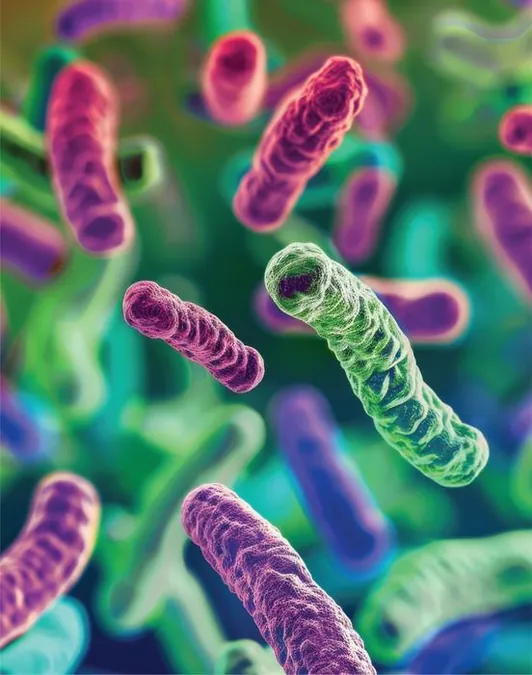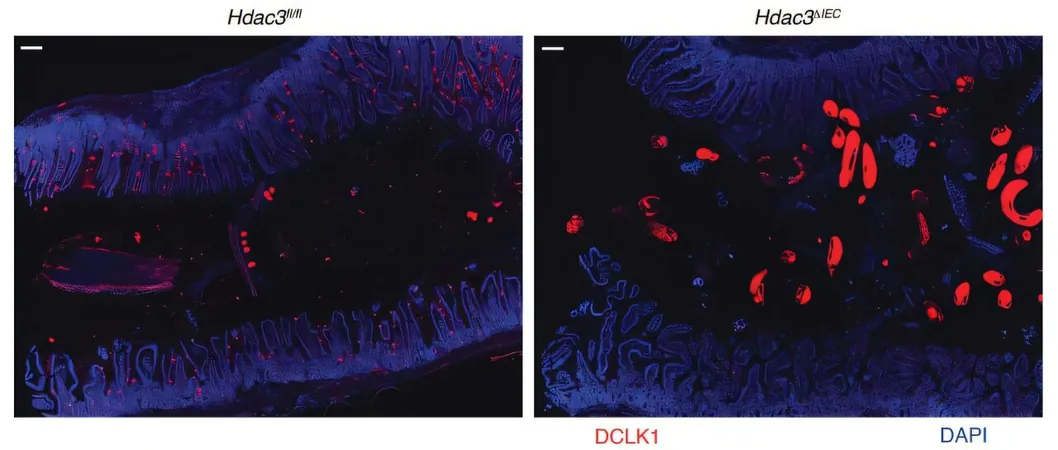
Breastfeeding: A Crucial Factor in Shaping Your Baby’s Microbiome and Reducing Asthma Risk!
2024-12-18
Author: Mei
In recent years, the significance of the human microbiome—the intricate community of microorganisms residing in and on our bodies—has become increasingly clear. These microbes don’t just coexist with us; they play pivotal roles in our health, affecting everything from digestion to immune system function. Interestingly, the establishment of this microbiome begins at or even before birth, and scientists are now uncovering just how crucial breast milk is to this delicate ecosystem.
The Impact of Breast Milk on Microbiome Development
A groundbreaking new study published in *Cell* reveals that the microbes in breast milk have profound implications for a child’s health, particularly their risk of developing asthma. Researchers found that infants who are breastfed beyond the three-month mark see their nasal and gut microbiomes flourish and mature. In stark contrast, those who are exclusively breastfed for three months or less exhibit disrupted microbiomes, leading to a significantly higher risk of developing preschool asthma.
Nutritional Benefits and Microbial Support
Breast milk is not only rich in nutrients; it also contains specific sugars that can only be digested with the help of certain microbes. These beneficial bacteria flourish when given these sugars, outcompeting harmful strains that might disrupt a newborn’s emerging microbiome.
Formula Feeding and Its Consequences
Importantly, infants transitioned to formula before or around three months are found to develop a notably different microbiome profile. Many of the bacteria present in formula-fed babies are eventually also found in all babies, albeit earlier and with an association to heightened asthma risk. This raises alarm bells for parents and caregivers considering feeding options.
The Role of Timing in Microbiome Development
Dr. Liat Shenhav, an assistant professor at the NYU Grossman School of Medicine, emphasizes that developing a healthy microbiome isn't merely about having the "right" microbes; it’s also about their arrival timing and order. Among the array of beneficial bacteria, one particular strain, Ruminococcus gnavus, is significantly more prevalent in exclusively breastfed infants. This microbe is vital for synthesizing short-chain fatty acids, which are linked to improved health outcomes and play a fundamental role in modulating the immune system and potentially lowering asthma risk.
Broader Implications for Public Health
The implications of these findings extend beyond the immediate health of infants. The infant microbiome contributes not only to successful digestion but also to the paramount task of nurturing a robust immune system.
Future Research Directions
Dr. Shenhav hints at hopeful prospects for near-future research that could lead to strategies aimed at preventing asthma in children who face challenges with breastfeeding for at least three months. This suggests that the conversation around breastfeeding, already laden with emotional and social factors, now also has substantial implications for science and health policy.
Conclusion
For parents navigating the complexities of infant nutrition and health, this study serves as a stark reminder: breastfeeding can significantly shape your child's microbiome and might just be a key player in their long-term respiratory health! So, could the secret to lowering asthma risk lie in the very first months of a baby’s life? The answer may very well be “yes,” and the stakes have never been higher!



 Brasil (PT)
Brasil (PT)
 Canada (EN)
Canada (EN)
 Chile (ES)
Chile (ES)
 España (ES)
España (ES)
 France (FR)
France (FR)
 Hong Kong (EN)
Hong Kong (EN)
 Italia (IT)
Italia (IT)
 日本 (JA)
日本 (JA)
 Magyarország (HU)
Magyarország (HU)
 Norge (NO)
Norge (NO)
 Polska (PL)
Polska (PL)
 Schweiz (DE)
Schweiz (DE)
 Singapore (EN)
Singapore (EN)
 Sverige (SV)
Sverige (SV)
 Suomi (FI)
Suomi (FI)
 Türkiye (TR)
Türkiye (TR)